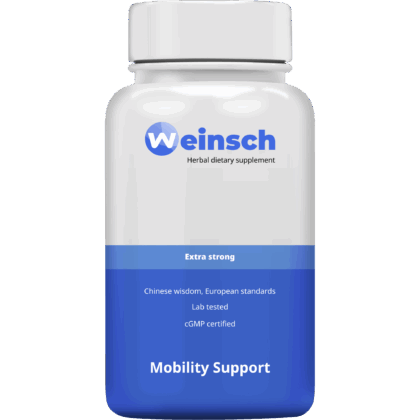Mu Gua (fruit du coing chinois) est une herbe chaude et acide de la médecine traditionnelle chinoise (MTC) connue pour détendre les nerfs, débloquer les canaux et transformer l'humidité. Elle est dérivée du fruit du Chaenomeles speciosa et est apprécié pour traiter les crampes musculaires, les raideurs articulaires et les spasmes causés par l'obstruction du vent et de l'humidité. Mu Gua harmonise également l'estomac et transforme l'humidité, ce qui le rend utile pour les troubles digestifs tels que la diarrhée et les douleurs abdominales dues à l'accumulation d'humidité. Sa double action sur les muscles et le système digestif en fait une plante importante pour les affections musculo-squelettiques et gastro-intestinales.
Fonctions et avantages
Détend les tendons et débloque les canauxAllège les raideurs, les spasmes et les crampes dans les muscles et les articulations causés par l'humidité du vent.
Transforme l'humidité et améliore la digestionAide à soulager les douleurs abdominales, la diarrhée et le manque d'appétit dus à l'accumulation d'humidité dans le brûleur central.
Harmonise l'estomacAllège les nausées, les vomissements et les malaises dus à la stagnation du Qi digestif.
Soulage l'œdème dû à l'humiditéSoutient le métabolisme de l'eau pour réduire l'œdème dans les conditions liées à l'humidité.
Indications (qui peut en bénéficier ?)✔ Personnes souffrant de crampes musculaires, de spasmes ou de raideurs articulaires dues à l'humidité du vent.✔ Personnes souffrant de diarrhée ou d'inconfort digestif dû à l'accumulation d'humidité.✔ Personnes souffrant de gonflement ou de lourdeur des membres dus à l'obstruction par l'humidité.✔ Patients souffrant de tension musculaire chronique ou de crampes post-exercice.
Diagnostic de la langue et du pouls en TCLangue : Pouls : glissant ou filandreux, reflétant une obstruction par l'humidité ou un Qi contraint.
Modèles MTC associésVent-Humidité obstruant les canaux - Provoque raideurs, spasmes et gonflements.Humidité dans le brûleur central - Produit diarrhées, ballonnements et manque d'appétit.Dysharmonie entre le foie et la rate - Entraîne un inconfort digestif accompagné de tensions musculaires.
Applications cliniques (à titre de référence uniquement)Crampes et spasmes musculaires - Détend les tendons et améliore la souplesse.Douleurs et raideurs articulaires - Ouvre les canaux bloqués par l'humidité.Troubles digestifs - Réduit la diarrhée et les ballonnements dus à l'accumulation d'humidité.Récupération post-exercice - Soulage les courbatures et les tensions musculaires.
Formules courantes à base de plantes avec Mu GuaSouvent associées à Du Huo et Sang Ji Sheng pour le syndrome bi vent-humidité, ou à Huo Xiang et Bai Zhu pour l'humidité dans le brûleur central.
Précautions et contre-indicationsAviter en cas d'hyperacidité ou d'ulcères d'estomac.Ne pas utiliser en cas de déficience du Yin avec des signes de chaleur.Utiliser avec précaution chez les personnes souffrant de sécheresse excessive.
Mode de vie et recommandations alimentaires✔ Prendre des repas légers et équilibrés et éviter les aliments gras et lourds qui contribuent à l'humidité.✔ Inclure des étirements doux ou des exercices de mobilité pour garder les tendons détendus.✔ Rester actif pour favoriser la circulation dans les muscles et les articulations.✔ Utiliser des soupes ou des tisanes réchauffantes pour aider à dissiper l'humidité par temps froid.
ConclusionMu Gua (fruit du cognassier chinois) est une plante chaude de la MTC qui transforme l'humidité, détend les tendons, débloque les canaux et améliore la digestion. Elle est particulièrement efficace en cas de crampes musculaires, de raideurs articulaires et d'inconfort digestif causés par l'humidité.
Ingrédients certifiés
Livraison gratuite à partir de 49,95
Réponse dans les 24 heures
Ingrédients certifiés
Livraison gratuite à partir de 49,95
Réponse dans les 24 heures

